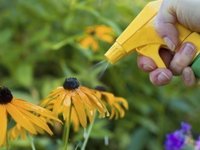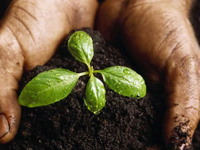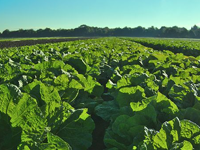-
Choosing the Best Material for Your Decking Project: A Comprehensive Guide - June 16, 2024
-
Sustainable Decking Solutions: A Comprehensive Guide to Eco-Friendly Materials - June 16, 2024
-
Avoiding Remodeling Nightmares: A Comprehensive Guide to Selecting a Reliable Contractor - June 10, 2024
-
9 Steps to Plan Out Your Home Improvement Projects - June 9, 2024
-
Low-Maintenance Deck Design: Enjoy Your Outdoor Space with Minimal Upkeep - June 9, 2024
-
Transform Your Home Like a Pro Even if You’re Clueless - June 8, 2024
-
Step-by-Step DIY Deck Building: Tips, Tricks, and Essential Considerations - June 8, 2024
-
Transform Your Bathroom: Essential Tips for a Successful Remodel - May 28, 2024
-
Unraveling the Mystery: Your Guide to Taking On a Roofing Project Like a Pro - May 27, 2024
-
13 Creative Ways To Give Your Floors A New Look - May 21, 2024
Organic Vegetable Gardening Is the Way to Go
In the US, farming is $6 billion industry. To keep it that way and with the health and welfare of the public in mind, the Department of Agriculture has taken steps so farmers can shift to organic farming. This does not only save money but also has some health benefits.
But first, we have to know what organic farming is. This is a technique that has been practiced by ancient civilizations that simply relied on the land they worked on, the sun and the water to make the harvests grow.
It was only when scientists invented fertilizers and pesticides that we moved away from this technique because it was thought that this will make the crops bigger and harvesting faster.
Unfortunately, the use of fertilizers and pesticides has done more harm than good. The chemicals used are harmful but never in small dosages. But imagine what if somebody consumes this in excessive amounts and unknowingly develops an illness or their baby has birth defects.
Such threats are real which is why we have to do something before it happens. Before the Department of Agriculture wanted everyone to go into organic farming, tests were conducted.
The results show that organically grown vegetables have more nutrients and vitamins compared to conventional farming. The same goes for its taste.
Organic vegetables do not have hydrogenated fats, artificial flavor or coloring, sweeteners, additives, preservatives or residual antibiotics. This means that what you get is all natural. But don’t forget to wash these first before it is cooked to remove any residue from the compost used in helping it grow.
The government or the Department of Agriculture is not the only one who should push farmers to shift towards organic farming. You can do your share by talking to the farmers themselves as they are the ones who plant them. You can also start planting organically grown vegetables yourself because they cost a bit more in the supermarket.
Before you start planting, check how big is the area so you have an idea what kind of vegetables can be planted given your limited space. You then need to buy the necessary tools and make some of them yourself. This information can be found online, in books and from the gardening store.
If you don’t want to start making an organic vegetable garden using seeds, you can get starter plants instead but be aware that they cost a bit more and this takes the thrill out of gardening.
But if money is no object to you, by all means get this from the store. Just make sure that there is a stamp which certifies that this has been approved by the Department of Health, Quality Assurance International, California Certified Organic Farmers or the Oregon Tilth Farm Verified Organic.
If everyone does their share, no one will use chemicals and fertilizers anymore. Everyone can live healthy and eat healthy. At the same time, we are able to protect the environment so future generations will be able to use the land we have used to plant their crops in the future.
Organic vegetable gardening is truly the way to go. If you noticed, some restaurants have done their share as well by making people know that whatever they use is organic.

























